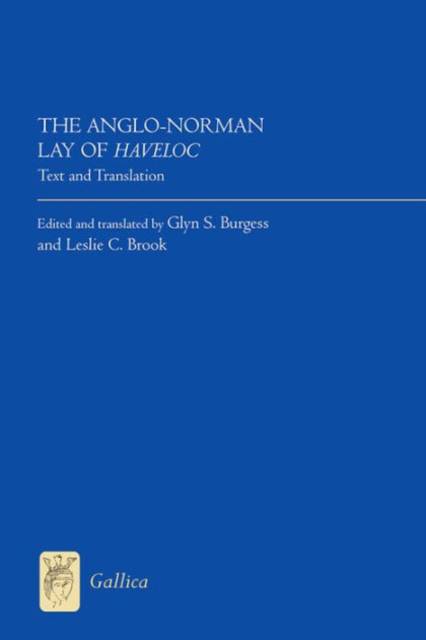
- Afhalen na 1 uur in een winkel met voorraad
- Gratis thuislevering in België vanaf € 30
- Ruim aanbod met 7 miljoen producten
- Afhalen na 1 uur in een winkel met voorraad
- Gratis thuislevering in België vanaf € 30
- Ruim aanbod met 7 miljoen producten
Zoeken
€ 177,45
+ 354 punten
Omschrijving
The story of Haveloc first appears in the oldest chronicle of the kings of England Britain, Geffrei Gaimar's Estoire des Engleis, and it is found in a substantial number of later accounts of English history. It is unusual in that it seemingly deals with "real" persons and events; but although names for the prototypes of Haveloc and other personages have been put forward, any search for historical evidence has been largely fruitless. The Haveloc story remains a legend, indeed one of the most compelling legends of the Middle Ages.
The Anglo-Norman lay of Haveloc survives in only two manuscripts, one (H) unedited since the nineteenth century and the other (P) since1925. This volume provides new editions of both versions and an English facing-page translation of the version in H. Also included is a translation of the Haveloc episode in Gaimar's chronicle and an edition and translation of thevarious shorter chronicle accounts, in French, English and Latin, which continued into the seventeenth century and survive in a modern English folk-tale.
Glyn S. Burgess is Emeritus Professor and Honorary Senior Fellow at the University of Liverpool; Leslie C. Brook is an Honorary Senior Research Fellow at the University of Birmingham.
The Anglo-Norman lay of Haveloc survives in only two manuscripts, one (H) unedited since the nineteenth century and the other (P) since1925. This volume provides new editions of both versions and an English facing-page translation of the version in H. Also included is a translation of the Haveloc episode in Gaimar's chronicle and an edition and translation of thevarious shorter chronicle accounts, in French, English and Latin, which continued into the seventeenth century and survive in a modern English folk-tale.
Glyn S. Burgess is Emeritus Professor and Honorary Senior Fellow at the University of Liverpool; Leslie C. Brook is an Honorary Senior Research Fellow at the University of Birmingham.
Specificaties
Betrokkenen
- Vertaler(s):
- Uitgeverij:
Inhoud
- Aantal bladzijden:
- 237
- Taal:
- Engels
- Reeks:
- Reeksnummer:
- nr. 37
Eigenschappen
- Productcode (EAN):
- 9781843844136
- Verschijningsdatum:
- 16/07/2015
- Uitvoering:
- Hardcover
- Formaat:
- Genaaid
- Afmetingen:
- 160 mm x 244 mm
- Gewicht:
- 571 g

Alleen bij Standaard Boekhandel
+ 354 punten op je klantenkaart van Standaard Boekhandel
Beoordelingen
We publiceren alleen reviews die voldoen aan de voorwaarden voor reviews. Bekijk onze voorwaarden voor reviews.






